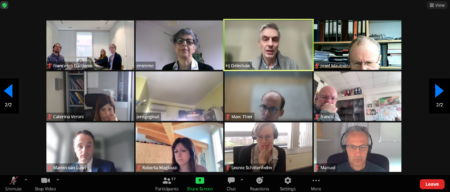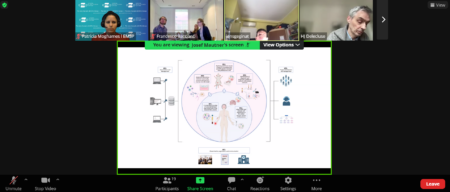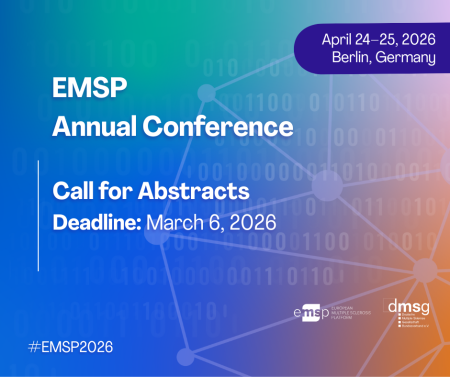
Unlocking the Mysteries of Multiple Sclerosis: The BEHIND-MS Initiative
13.03.2024Multiple Sclerosis (MS) stands as one of the most puzzling neurological conditions, especially in regards to its exact causes and mechanisms. However, recent research have highlighted a potential key player in the development of MS: the Epstein-Barr virus (EBV). To understand this pivotal connection in depth, the European Union has rallied behind groundbreaking initiatives. One of these projects in which EMSP is part of is BEHIND-MS, led by the German Cancer Research Center (DKFZ) and funded by Horizon Europe.
How to understand the EBV-MS Nexus?
BEHIND-MS aims to dissect the complex interplay between EBV infection and the immune system, shedding light on how this contributes to the onset and progression of MS. Led by Professor Henri-Jacques Delecluse, a consortium of multidisciplinary experts will be aiming to understand this.
The Research Blueprint
BEHIND-MS defines a multifaceted approach to understand the EBV-MS connection:
- Exploring the immune responses: The project aims to discover whether the immune system effectively controls EBV infection in both blood and brain tissues of MS patients.
- Deciphering the mechanisms: Researchers will carefully study how EBV infection and immune problems cause damage in the central nervous system, using lab models.
- Pioneering models for investigating early MS signs: Researchers will develop animal models to understand the period before clinical symptoms become apparent and a formal diagnosis of MS is made (also known as prodromal phase). This will offer a window into early pathogenic events, laying the groundwork for new therapies.
- Biomarker discovery: The initiative also aims to identify biomarkers for EBV infection in MS patients, offering diagnostic and prognostic insights that will be needed for personalised treatment strategies.
A Collaborative Endeavor
BEHIND-MS includes experts of various domains including virology, neurology, immunology, and beyond, from esteemed institutions across Europe. Through this collaboration, the consortium aims to redefine our understanding of MS.
Setting the Course
The recent kick-off meeting of the BEHIND-MS consortium was held on 12 March 2024, in an online meeting.
The meeting commenced with a welcoming address by Prof. Henri-Jacques Delecluse, followed by discussions from Monica Ensini of the European Commission and Lisa Greiner from the DKFZ Grant Office. These discussions covered financial, administrative matters, and project updates from various work packages (WP) to ensure the proper and efficient conduct of the project.
Each WP leader then discussed the objectives of their work, alongside logistics and ethics of sample shipments and plans ahead. Overarching WPs such as project management as well as communication and dissemination were discussed in depth to ensure all partners are on board. From going through all the work packages one by one, to defining the timelines, deadlines and collaborations, the kick-off was rich in plans forward.

Dr. Josef Mautner explaining the complex relationship between different work packages and the biological samples that will be analysed across the project.
Looking Ahead
BEHIND-MS moves forward with careful planning, dedication, and teamwork. All stakeholders, including people with MS, MS societies, researchers, healthcare professionals, advocacy groups and industry will be involved throughout the project. This will aim to ensure that they are provided with the right platforms and channels to share their concerns and questions and to discuss updates and findings with the project researchers and partners. With this project, each milestone we reach brings us closer to understanding MS. Through collaboration and innovation, BEHIND-MS aims to make significant progress in combating MS.
Read more about the project in the press release here: https://www.eurekalert.org/news-releases/1010132 and here https://emsp.org/projects/behind-ms/
Stay tuned for the project’s upcoming website in May 2024.

“This project has received funding from the European Union’s Horizon Europe Research and Innovation Actions under grant no. 101137235 (BEHIND-MS). Views and opinions expressed are however those of the author(s) only and do not necessarily reflect those of the European Union nor the granting authority. Neither the European Union nor the granting authority can be held responsible for them.”
 Your Account
Your Account


